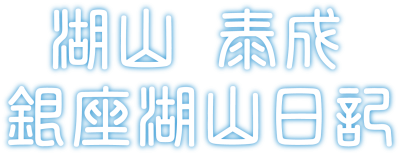My Life’s Journey

Occasionally, as a healthcare and welfare manager, I give lectures at universities and receive interviews from management magazines.
I guess I was recognized as a successful and unconventional manager.
But, there are no management theories, no excellent organizational theories, and certainly no outstanding managers discussed there.
It is simply the story of a lost lamb at the age of 27, who, unwillingly, took on a bankrupt hospital, acquired it with debt, and rebuilt it.
Although there are now facilities nationwide, I never went to those places because I wanted to expand.
It was always someone’s connection, someone who invited me from the local area, that brought me there.
That’s why there were no issues with the medical associations or the hospital associations.
“An accidental encounter becomes a necessary part of management.“
That is the lesson of my life.
The history of the establishment of Koyama Group’s facilities nationwide is undoubtedly the journey of my life.
It is true that I wanted to create a hospital where I could admit my parents and a care facility I would want to enter myself.
That goal has been achieved.
So, does this mean I’ll retire now?
Finally, I have found something I want to do.
Originally, I paid more attention to the organization of Koyama Group and the relationships with employees than to healthcare and nursing itself.
I’ve always been conscious of the happiness of the employees’ families.
Perhaps it is because, for me, family was something to lose.
Now, I cherish the events of the daycare centers and mother-child support facilities.
I’m even happy that the carts and campervans for disaster support are popular with the children.
My current challenge is educational support.
Originally, Koyama Group offers a scholarship system for employees to attend correspondence universities.
However, only a small number of employees have used it.
It’s unfortunate.
I want to expand the application of this Koyama College Scholarship Fund to children in mother-child support facilities and to technical intern trainees.
Foreign employees can also graduate from Japanese universities.
Children who have stayed in mother-child facilities, even after they leave, should continue to receive academic support.
If possible, I want employees to go as far as graduate school, obtain a master’s degree, and become university teachers, like I did.
For those of us who work while facing human death, I want to be able to look at the future of young people.
Yesterday, I heard from the mayor of a town in Fukushima, who is planning to build a high school that will attract students from all over the country.
I thought I would like to build a dormitory for high school students next to that.
From my experience running mother-child support facilities, I believe dormitories should be built next to elementary and middle schools.
There is only one fully residential high school in Tokyo.
If there were fully residential elementary and middle schools, mothers would find it easier to work.
Would it be possible to create schools where children with developmental disabilities or those who are withdrawn can be taken care of?
For that, we need staff who provide medical care, welfare, and parental love.
This is when I think, “If only we had the money.”
That being said, I’m grateful that, thanks to the efforts of our staff, we are not running at a loss.
What I might be aiming for is to be a foster parent of society.
Blood sugar 132. I’m about to cook a steak for breakfast.
Koyama Group Representative
Thunderbird Representative
Vice President of Health Station
Recently, I’ve been receiving ties, handkerchiefs, and pins for my collar.
It seems they’ve become my trademark.
Thank you very much.
Yasunari Koyama
